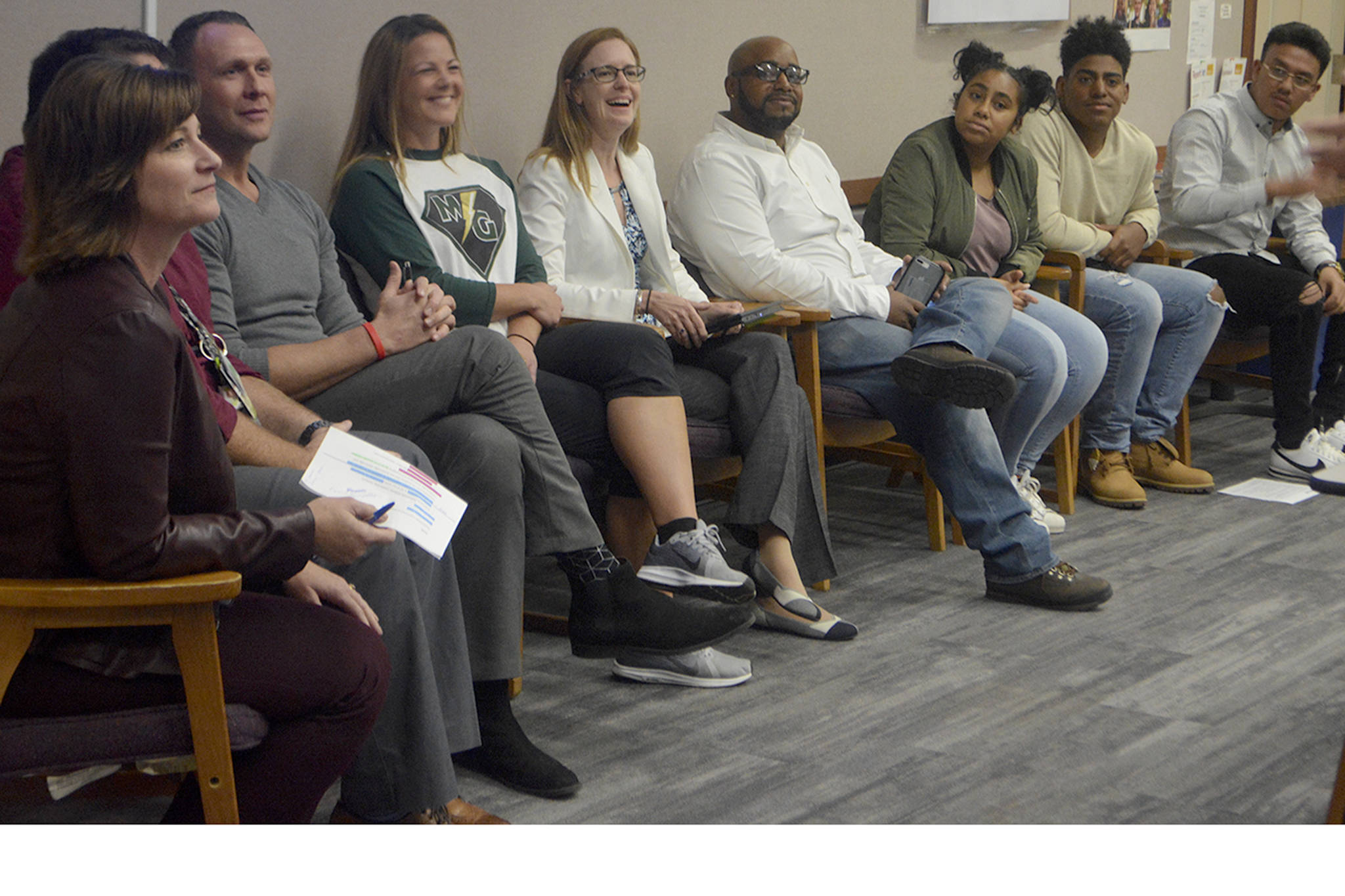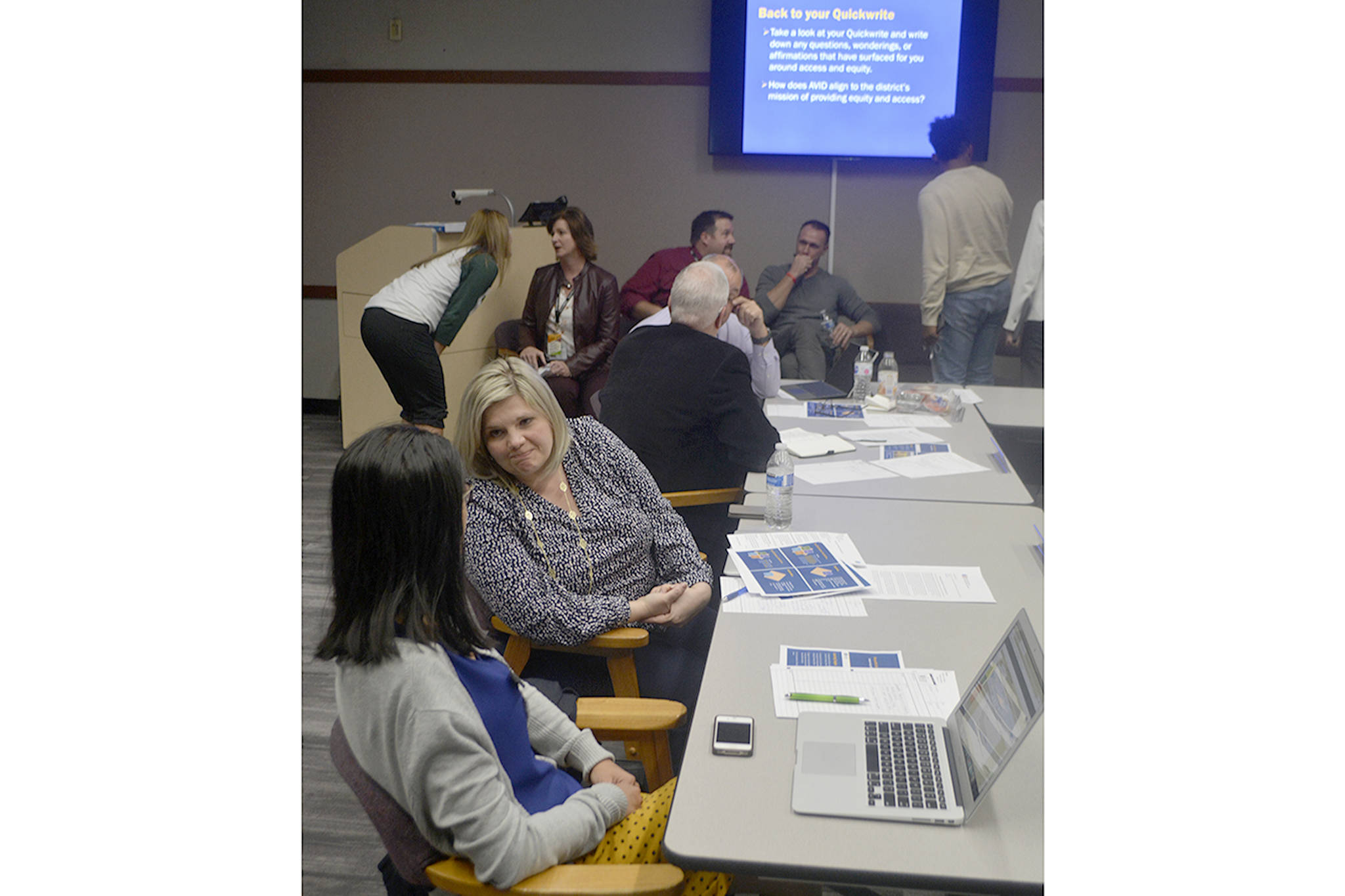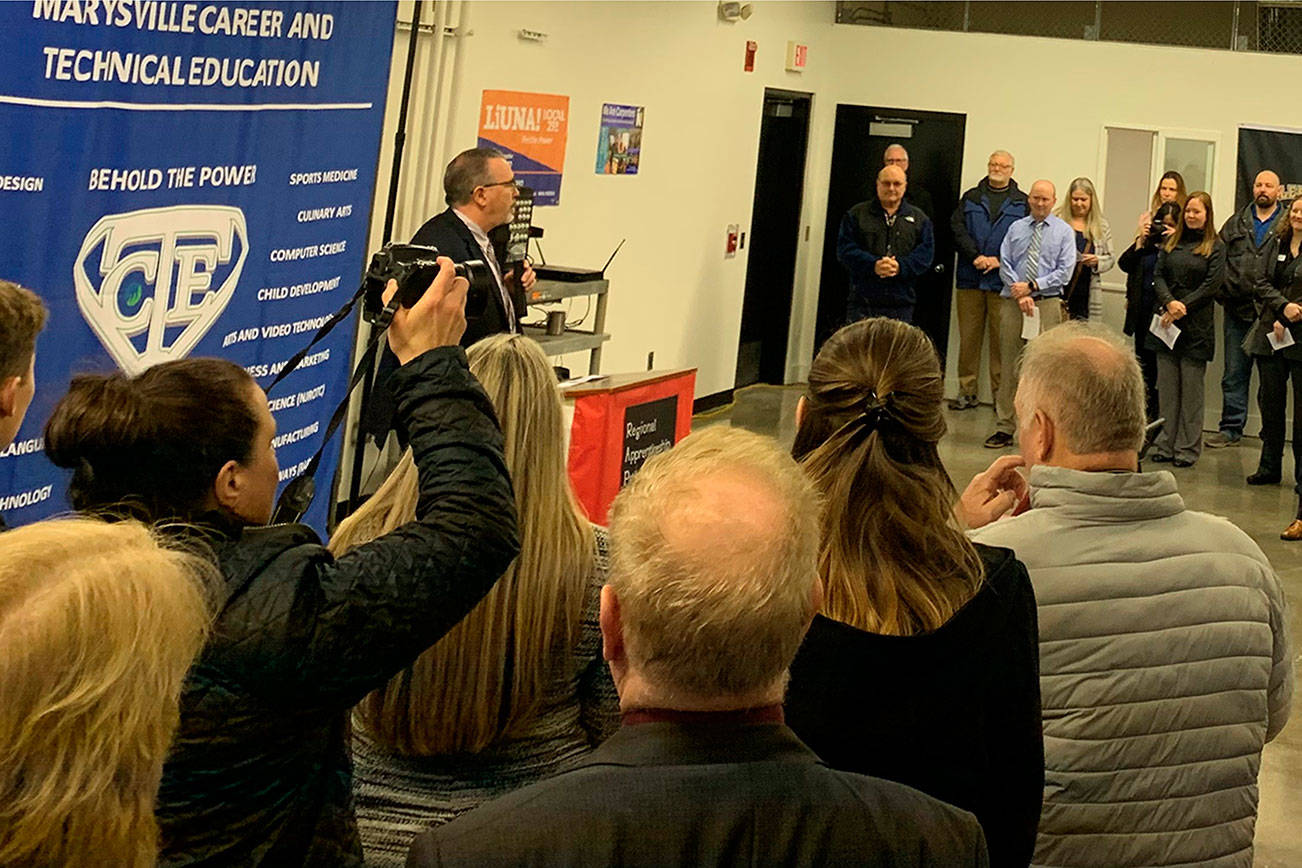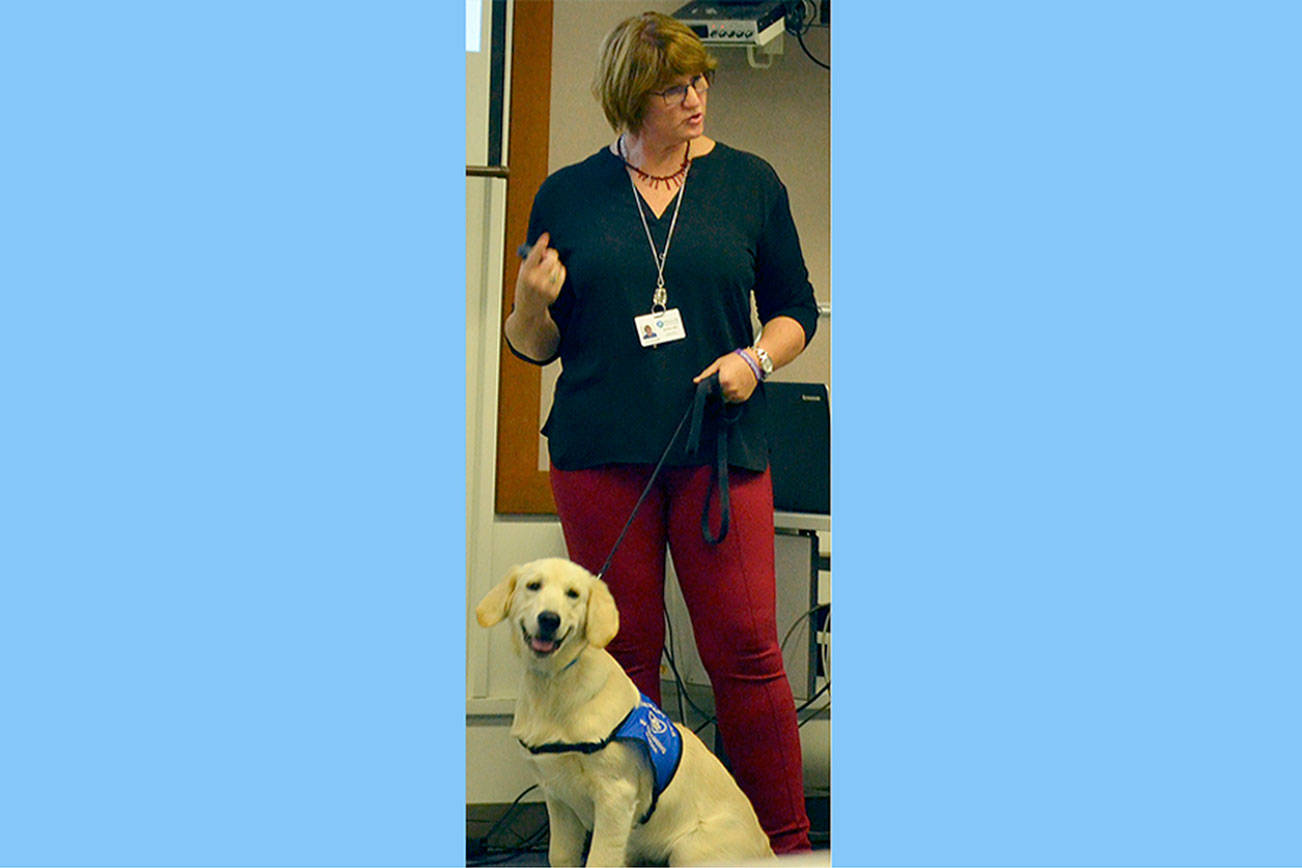MARYSVILLE – When Advancement Via Individual Determination first came to Marysville in 2011, its focus was getting minorities into college.
Now, AVID’s goal is to get all students “opportunity ready” – for a job, apprenticeship, trade school, community college, college, military or whatever.
“AVID gives teachers the tools to teach anyone,” Director Pete Lundberg said at a school board work session Monday.
He continued by saying in the past teachers lacked the strategies to teach all kids. But now the district is developing the culture where “teachers believe all kids can learn.”
Amy Price, AVID coordinator for the Marysville School District, said it can help close the achievement gap, inspire students and prepare graduates.
Rod Merrell, director of Secondary Schools, said he developed a “huge bias in the Power of AVID” while principal at Mount Vernon High School. Teachers get fatigued by the initiative-of-the-day environment. “But these fit. This is just what we do in Marysville. It’s part of the culture.”
Director Tom Albright said he likes that AVID supports all types of future endeavors. He said research shows that if a student takes anything after high school lifetime earning figures double.
A nine-member panel of AVID administrators, teachers and students talked about the program in depth at the meeting.
•Janelle McFalls, principal at Allen Creek Elementary, said her teachers “came back with such energy” after going to AVID training. “This gives kids hope.” She said AVID teaches kids to be organized and excel at taking notes. She added it’s not overbearing because it’s what they do already. It just organizes processes in a way that makes sense.
•Richard Middaugh, principal at Liberty Elementary, said the AVID systems give everyone direction. The organizational binders are helping students meet deadlines, he added. “It’s not something we do. It’s who we are,” he said of AVID.
•Bary Gould, M-P AVID teacher, said he has been to lot of training, but when he goes to AVID ones, he believes in it so much he starts teaching it the next day. It’s a compilation of best practices, he added. He’s seen the “Power of AVID”; one kid who used to get all F’s now complains about a C-. Gould said. He added he wishes he had AVID in school. He had a poor single mom, but he did well because he wanted to please his teachers. “AVID would have saved me a lot of grief,” he said.
•Andrea France, MG AVID teacher, said AVID is not just “one more thing a teacher has to do.” They receive professional development, support and resources.
•Katherine Jordan, MVAT AVID teacher, got emotional talking about AVID. She teaches sophomores who failed every class in middle school. Now, they are passing 88 percent of their classes. They are seeing the difference in themselves, she said. “They didn’t think they could go to college, and their attendance is off the charts.” •Cheron Smith Sr. has three kids who have taken AVID. He said it changed his oldest daughter, now a junior at the University of Washington. He said his younger two didn’t have a choice about taking it. •Cheron Smith Jr., a sophomore at Marysville Getchell, said he’s been in AVID since the seventh grade. He thinks of his AVID teachers as his second family, “Mom at school.”
•Mya Smith, a senior at MG, said when she went on field trips to colleges as an AVID student, that’s when she knew, “I can do it. I can see myself going to these colleges.” Mya added that high school is a safe place and that AVID helps students “get ready to grow.”
•Mohaned Aldowairi, a junior at MG, said AVID isn’t just about academics. It taught him how to be a “human being. The power to know who I am as a person. What I need in life.” He mentioned France and Gould as teachers who showed him in the classroom “how to touch the hearts of kids.”
Definition
Districtwide AVID is a commitment to aligning district resources to support quality schoolwide implementation of the AVID College Readiness System, so that all students have access to and success with rigorous instructional experiences.
The 4 domains
•Instruction: Project-based learning, student leadership skills, goal setting and monitoring, rigor and relevance for all.
•Systems: Building leadership teams, data-driven decision making, professional learning, PBIS, family engagement. •Leadership: Strategic planning, modeling expectations, equity, shared decision-making.
•Culture: Collective responsibility for all students, social-emotional learning, trauma-informed practices, common belief in student success.









